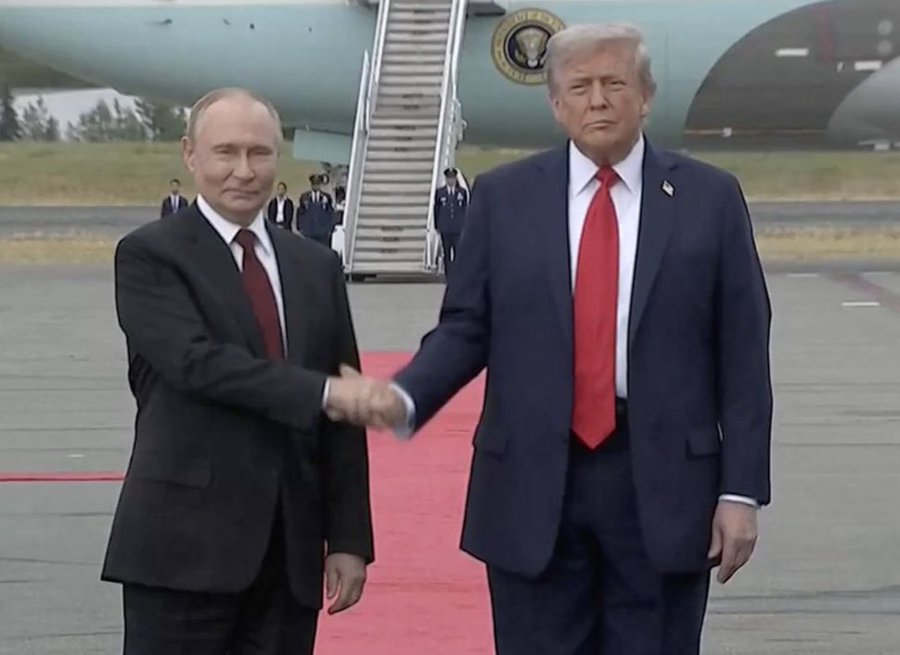After years of fighting, the Russo-Ukrainian war now seems to be approaching its conclusion. This was never just a regional conflict, but a fracture that reshaped Europe’s political geography and altered global dynamics. In this new scenario, three powers emerge as clear winners: the United States, Russia, and the United Kingdom. Different actors, often with opposing interests, yet united by their ability to come out of the war stronger.
Washington: The Pillar Without Which Nothing Moves
The United States remains the backbone of European security. Without Washington’s military, economic, and logistical support, Kyiv would never have withstood the Russian advance. But beyond defending Ukraine, America’s real victory is geopolitical: the war cemented U.S. centrality within NATO and deepened Europe’s dependence on the Atlantic alliance.
At a time when the European Union was cautiously hinting at strategic autonomy, the conflict pulled all allies back under American leadership. Washington also safeguarded its global primacy: it contained Russia, disciplined Europe, and proved that no international crisis can unfold without the White House’s involvement.
Moscow: A Military Victory That Rewrites Russian History
Against many predictions, Russia not only withstood Western pressure but also managed to redefine its international standing. Moscow is no longer just Beijing’s junior partner; it now acts as an autonomous power, even exploring new channels of cooperation with the United States, particularly concerning the Artic route.
Consolidating control over the Sea of Azov and much of the northern Black Sea coast marks a strategic achievement, enhancing Russia’s maritime and commercial projection.
Yet the most striking result is military. For the first time in modern history, Russia has won a war through an offensive strategy, breaking away from its traditional doctrine of retreat-and-exhaustion. In the past, offensive campaigns — from the 1905 war with Japan to World War I and the Soviet invasion of Afghanistan — ended in disaster. This time, Moscow demonstrated that it has successfully transformed its military model. A shift that will have long-term implications for Russian doctrine.
London: The Return of Europe’s Forgotten Power
If the U.S. consolidates global leadership and Russia reasserts its strategic autonomy, the real “comeback power” of this war is the United Kingdom.
After years of post-Brexit uncertainty, London has reestablished itself as a central player in European geopolitics. British intelligence, arms supplies, and diplomatic engagement with Ukraine brought the U.K. back to the forefront. More importantly, London forged strong ties with Poland and the Baltic states, becoming the primary reference point for Eastern Europe’s security against Russian expansionism.
Today, Britain once again acts as a bridge between Washington and Europe, reclaiming its role as one of the continent’s leading strategic capitals.
Other Actors: Winners and Losers in the Background
Alongside these three protagonists, other players saw their positions shift.
- Germany: continues its historic economic push eastward, strengthening its influence in Central and Eastern Europe, though still overshadowed by Washington and London.
- France: weakened in Africa and sidelined in Europe, it lost its role as a bridge to the East.
- Italy and the Mediterranean states: reduced to spectators, with little influence due to the absence of a coherent strategy.
Meanwhile, Ukraine faces a grim reality. The risk of political and economic collapse is real. Poland is preparing investment funds to tie Galicia to its economic orbit; Hungary keeps an eye on Transcarpathia; and Romania increasingly focuses on Moldova, whose entry into the EU could amount to de facto annexation by Bucharest. Ukraine’s survival as a unified state will depend on its ability to implement genuine administrative decentralization that protects its minorities.
Conclusion: A New Triangle of Power
The Russo-Ukrainian war has revealed a new triangle of power. The United States reaffirms its role as indispensable arbiter, Russia rewrites its military doctrine while reasserting its status as a global power, and the United Kingdom returns as a central actor in European security.
The war has produced a map of power less centered on the European Union and more dependent on three players capable of acting globally. A sobering reality for those who envisioned an autonomous Europe — but one that will shape the continent’s future and the international order for decades to come.
Marco Baratto

